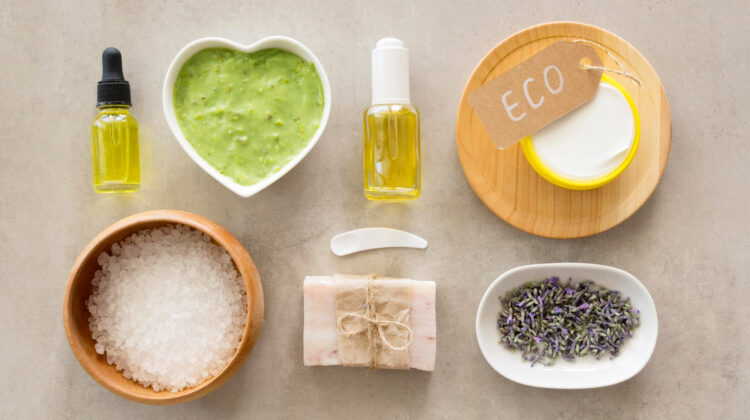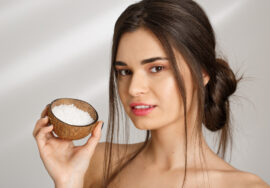
Back to Basics: Sustainable Skincare That Resonates Beyond Self Care Hype
Introduction: Moving Beyond the Hype
In recent years, self-care has been packaged and sold as the ultimate lifestyle goal. From elaborate skincare routines to endless new product launches, the beauty industry has thrived on the hype of consumption. Yet, a growing number of people are looking for something deeper—sustainable skincare that aligns with both personal wellness and environmental responsibility. Instead of chasing every new product, consumers are returning to back-to-basics beauty practices that emphasize simplicity, sustainability, and authenticity.
What Is Sustainable Skincare?
Sustainable skincare is about making choices that are safe for the skin, ethically sourced, and environmentally responsible. It avoids harmful chemicals, reduces unnecessary packaging, and prioritizes natural ingredients. More importantly, it shifts the focus from endless consumption to mindful use. For consumers tired of empty promises, this approach resonates as a more holistic and ethical form of beauty.
Why the Self-Care Hype Falls Short
The self-care boom has taught many people the importance of prioritizing wellness. However, when it comes to beauty, the hype often translates into overconsumption. Multi-step routines filled with products that overlap in function not only waste money but also stress the skin barrier. Harsh treatments, fast-fashion beauty launches, and disposable packaging further strain the environment. Sustainable skincare stands apart by focusing on quality over quantity and building routines that serve both personal health and global wellness.
The Core Principles of Sustainable Beauty
Sustainable skincare is guided by a few essential principles:
- Transparency: Brands disclose ingredients, sourcing, and environmental practices.
- Minimalism: Fewer, multifunctional products that do more with less.
- Eco-conscious packaging: Recyclable, refillable, or biodegradable options.
- Safe ingredients: Avoiding parabens, sulfates, and microplastics.
- Ethical sourcing: Fair trade and cruelty-free practices.
These pillars ensure that beauty routines benefit not only individuals but also the planet.
Key Ingredients in Sustainable Skincare
Sustainable beauty relies on natural, science-backed ingredients that nourish skin without harm. Some trending yet timeless options include:
- Aloe vera: Hydrating and soothing, perfect for sensitive skin.
- Shea butter: Rich in fatty acids for moisture and repair.
- Green tea extract: A natural antioxidant to fight free radicals.
- Jojoba oil: Lightweight hydration that mimics skin’s natural sebum.
- Rosehip oil: Promotes regeneration and reduces scarring.
These ingredients align with the clean beauty philosophy, ensuring long-term results without relying on synthetic or harsh formulas.
Minimalist Routines: Back to Basics Beauty
A sustainable approach often means paring down to essentials. A simple routine might include:
- Gentle cleanser to protect the skin barrier.
- Moisturizer with natural oils or butters for hydration.
- Sunscreen as the most effective anti-aging tool.
Optional add-ons like serums can be chosen for specific concerns, but the goal is to keep skincare effective, not excessive. This not only reduces clutter but also allows the skin to thrive without being overwhelmed.
The Beauty of Multi-Functional Products
Consumers are increasingly drawn to products that serve multiple purposes—like moisturizers that double as night masks or tinted sunscreens that provide coverage and protection. These solutions save money, reduce waste, and simplify routines. In a market flooded with single-use products, multifunctional items reflect a smarter and more sustainable beauty mindset.
Consumer Shift: Why Sustainability Resonates
The demand for sustainable skincare is not only a personal choice but also a reflection of broader values. Consumers, especially younger generations, are holding brands accountable for their environmental impact. They want products that align with their ethics, from recyclable packaging to cruelty-free testing. This shift is pushing beauty companies to rethink their practices and offer products that resonate beyond self-care hype.
Expert Opinions on Sustainable Beauty
Dermatologists emphasize that simple, consistent routines often outperform complex regimens. Environmental experts warn against the ecological impact of single-use plastics and chemical runoff from beauty products. Nutritionists highlight the link between diet, lifestyle, and skin health, reinforcing the idea that beauty cannot be separated from overall wellness. Experts agree that sustainable skincare is not just better for the planet—it’s better for the skin.
Lifestyle Integration: Making Sustainability a Habit
Sustainable beauty becomes truly impactful when integrated into lifestyle choices. Consumers can:
- Switch to refillable or recyclable packaging.
- Choose brands with eco-certifications and transparent sourcing.
- Support local or small-batch producers who prioritize ethical practices.
- Pair skincare routines with healthy habits like hydration, balanced nutrition, and stress management.
By aligning beauty with broader wellness practices, sustainable skincare becomes a lifestyle, not just a purchase.
Conclusion: A Beauty Philosophy That Lasts
Sustainable skincare represents a return to authenticity in the beauty world. It moves beyond the self-care hype of endless consumption and instead embraces routines that are effective, ethical, and environmentally sound. By focusing on clean ingredients, minimalist routines, and eco-conscious choices, consumers can achieve healthier skin while contributing to a healthier planet. In the end, sustainable beauty resonates because it reflects something deeper than trends—it reflects values, balance, and long-term well being.







